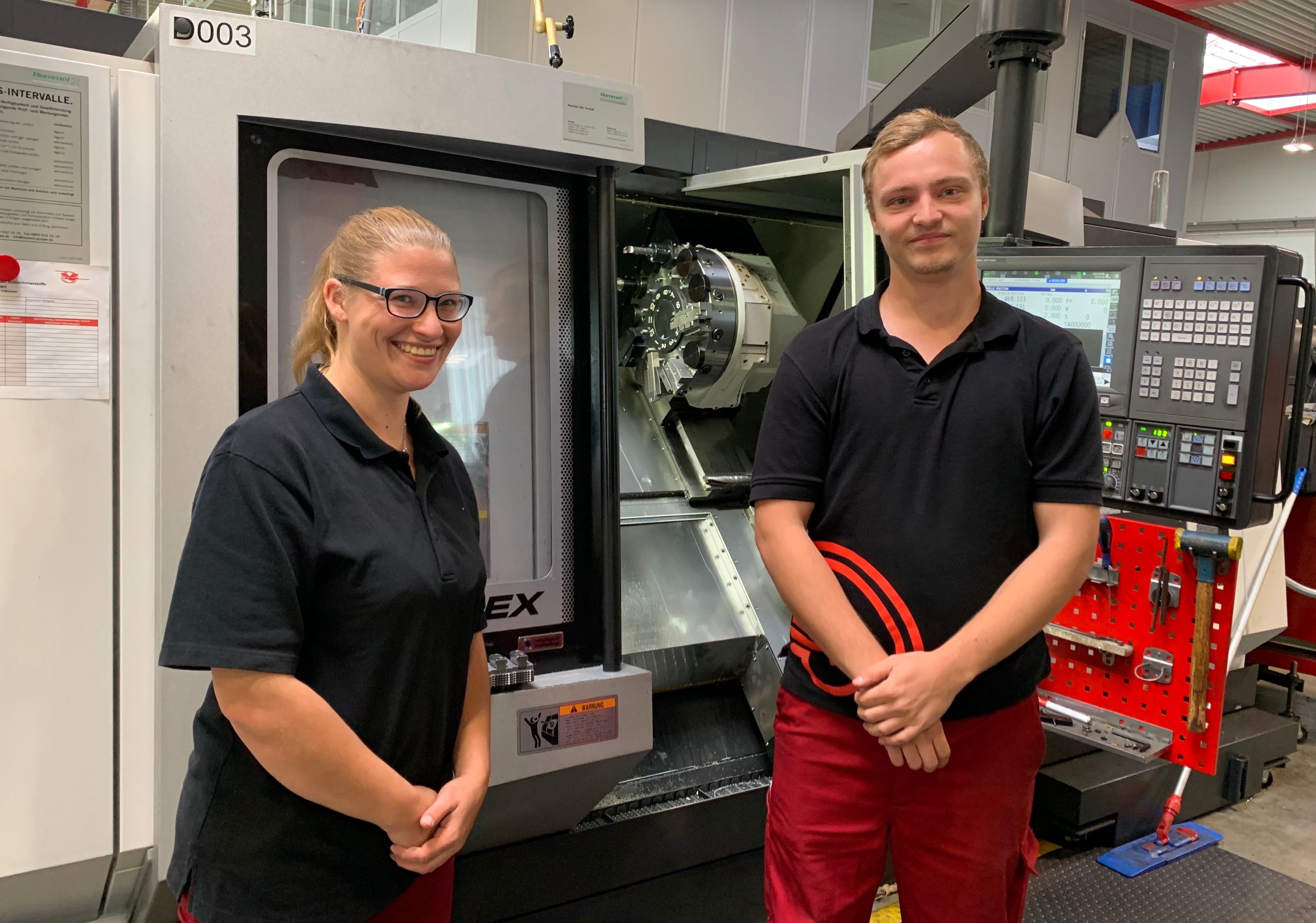What does a toolmaker actually do?

Sarah Sperling and Dominik Schröder are toolmakers in training at Finkernagel. Here they report about their experiences.
Hello Sarah, hello Dominik. You started your training in August. What surprised you the most during the first months?
Sarah: How versatile this profession is. Although I had worked in a different companies before, I was amazed at what you can do with the tools and machines.
Dominik: What surprised me the most was how exactly you can work with the right machine. The same applies to how precisely a workpiece is machined, from the drawing to the finished product.
What do you like most so far? Is there a typical working day?
Sarah: I have recently been trained in air grooving and air surface milling and I am happy when I receive orders for it. There is no such thing as a typical working day. Every day can be different.
Dominik: My favorite tasks are, at least so far, getting to know the machines and mastering them more and more. Gathering experience and growing with it.
What do you particularly like about Finkernagel?
Sarah: That we work hand in hand and the staff is very helpful and friendly. The work is varied, even as a first-year trainee.
Dominik: The friendly atmosphere in the team, the modern machines and the great trust in the trainees, which increases self-confidence and independence.
What should you particularly enjoy doing if you want to become a toolmaker?
Sarah: One should not be averse to mathematics, enjoy doing finer work with various tools such as a file and be technically a little talented (CNC turning and CNC milling).
Dominik: Above all, you should have an interest in the field. Craftsmanship is an advantage and one should enjoy working in team.
What do you think, will this profession still exist in 50 years?
Sarah: Yes, I think so. I can't imagine that the very fine work like polishing to a certain size or deburring can be done by any machine.
Dominik: The manufacture of a tool requires many individual steps and a wide variety of processing machines, so this profession will still exist for many years to come.